Best open source Text Editors

Text editors are mainly used by programmers and developers for manipulating plain text source code, editing configuration files or preparing documentation and even viewing error logs. Text editors is a piece of software which enables to create, modify and delete files that a programmer is using while creating website or mobile app. Text editors are scaled-down from the full functionality of an IDE (Integrated Development Environment), but also contains plugins to perform add-on works. Text editors are ideally fast and lightweight for editing and manipulating a small number of text files at a time, and they provide features like regular expression search and replace, syntax highlighting, autocompletion, and multiple tabs or window panes. In this article, we will discuss about top 7 all-round performing text editors which is highly supportive for programmers.
Text editors also integrate with source code management software and build automation software tools via plugins.
Key advantages of Text Editor:
- Open, edit, delete plain text files
- Duplicating and moving text across or within text files
- Automating redundant tasks within the editing process
- Syntax highlighting to improvise editing speed
- Plugins integration for customizable tools
Text Editors are used by:
- Programmers and Developers: With the ability to switch easily from one coding file to another, text editors simplify navigation between projects. Some text editors will organize files in a drop-down menu so it is easy to see which file belongs to which project.
- Web developers: With a text editor, it is easy to use mark-up languages such as HTML and CSS to code a website.
- Digital marketers – Digital marketers often need to be able to make coding tweaks to websites to add tracking tools and optimize for SEO. With a text editor, marketers can build basic websites, forms, and email designs using programming languages such as HTML and CSS.
Types of Text Editor:
- Open source – A text editor that is open source allows the user to change the source code to better customize the tool itself. Users can alter the source code to add features or plugins, or simply change the color of the background or text. One major advantage of open-source software is that anyone can download it at no cost.
- Proprietary – Proprietary text editors will have more features available at the outset, but users will likely need to pay to use the tool. Users of proprietary software will also not have access to the source code, which means that one must be aware of the available features and add-ons
Best Open Source Text Editors
VIM
Vim is an advanced text editor that seeks to provide the power of the editor ‘Vi’, with a more complete feature set. This editor is very useful for editing programs and other plain ASCII files. All commands are given with normal keyboard characters.
Vim is often called a “programmer’s editor,” and is so useful for programming that many consider it to be an entire Integrated Development Environment. However, this application is not only intended for programmers. Vim is highly regarded for all kinds of text editing, from composing email to editing configuration files.
Pros:
- Lightweight and fast
- Powerful plugin model
- Free and Open Source
- Configuration Portability
- Purely based on Keyboard, No Mouse
Cons:
- Difficult to understand
- Not easy to customize
- Poor support for external tooling
- Poor feature discoverability
- Doesn’t support cut/paste mechanism
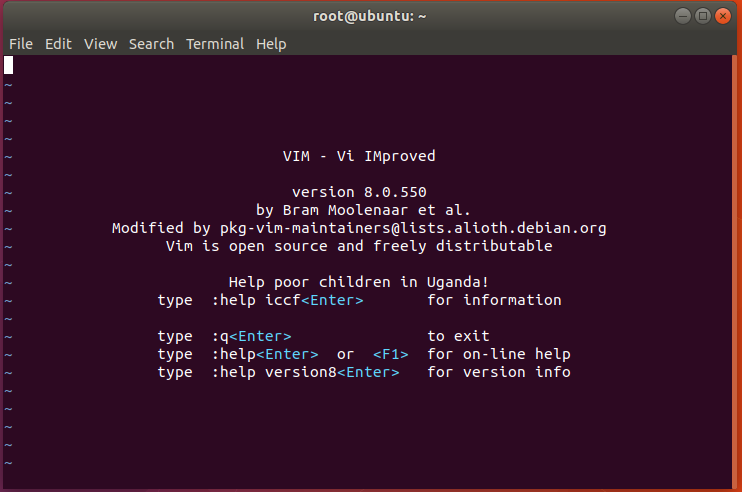
Emacs
GNU Emacs is an extensible, customizable, self-documenting text editor. Emacs is a highly advanced text editor, providing users with much more than simple insertion and deletion. This large, complex application does everything from editing text to functioning as a complete development environment.
It can control subprocesses, indent programs automatically, show two or more files at once, and edit formatted text. Emacs editing commands operate in terms of characters, words, lines, sentences, paragraphs, and pages, as well as expressions and comments in various programming languages.
Pros:
- Extensible and customizable
- Mature integration with almost every programming language/tool
- More powerful editing capabilities
- Supports editing of files, web browsing etc.
- Low memory consumption, portability and user friendly.
- Support for X displays, multi-file commits and multi-lingual support
Cons:
- Questionable ergonomics
- Requires long duration to learn and be productive with this editor
- Awkward keyword shortcuts especially for mac users.
- Single-threaded
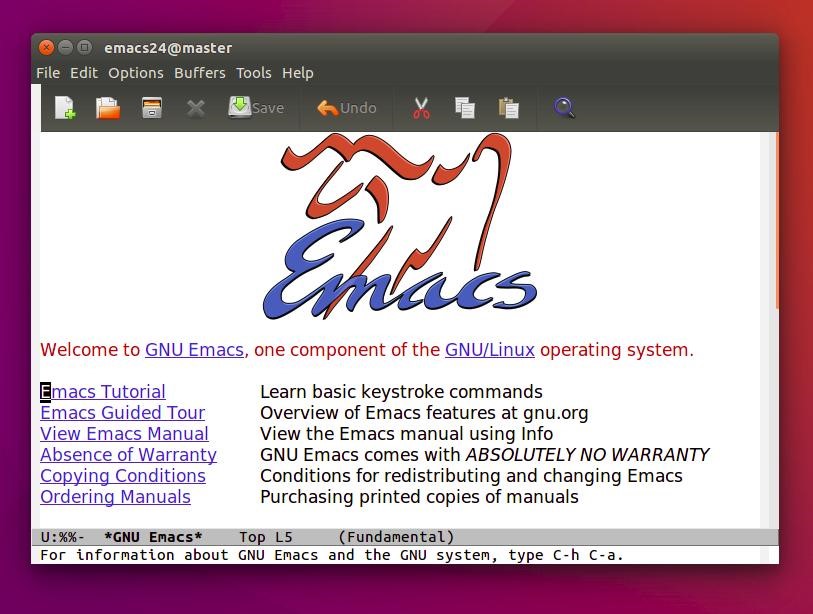
Neovim
Neovim is a free open source, powerful, extensible and usable code editor that provides Vim’s fundamental traditional features. It is an extension of Vim that comes with an in-built Linux terminal emulator with modern terminal features such as cursor styling, focus events, and bracketed paste. Importantly, it supports most Vim plugins.
The Neovim editor is available in Ubuntu's PPAs, and several other package managers, making it possible to install on a variety of Linux-based operating systems.
Pros:
- Upgraded features and bugfixes as compared to VIM
- Better Integration with external tools
- Powerful plugin model
- Modern code base
- Built in Terminal Emulator and Easy Agnostic UI
- Light on memory utilization and work in Tex User Interface (TUI)
Cons:
- Limited cross platform support
- No GUI
- Poor Feature discoverability and poor support for external tooling
- Requires more efforts for customizations
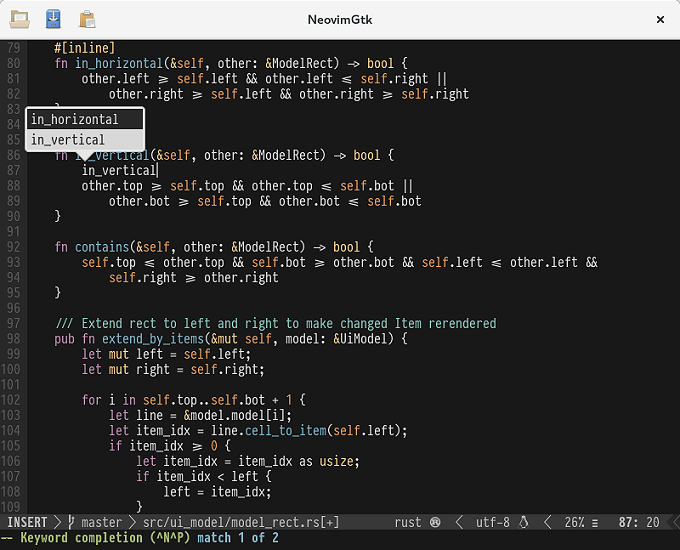
Atom
Atom is an open source desktop application based on web technologies, specifically HTML, JavaScript, CSS, and Node.js integration. It runs on Electron, a framework for building cross platform apps using web technologies.
Atom consists of over 50 open source packages integrated around a minimal core. With Node.js support, and a full set of features, Atom is an excellent way to edit code. It’s easy to customize and style Atom. You can tweak the look and feel of your UI with CSS/Less and add major features with HTML and JavaScript. Atom is ideal if you like to tinker with your editor. Atom has more than 1 million active users.
Pros:
- Support lots of packages and Multi-platform
- Embedded Git Control and supports multi-line editing and selecting
- Effective Package Management and Great GUI
- Supports tons of languages including- HTML, CSS, Less, Sass, GitHub Flavored Markdown, C/C++, C#, Go, Java, Objective-C, JavaScript, JSON, CoffeeScript, Python, PHP, Ruby, Ruby on Rails, ShellScript, Clojure, Perl, Git, Make, Property List (Apple), TOML, XML, YAML, Mustache & SQL
Cons:
- Some slow in performance
- Difficult to hand large text files
- High memory usage
- Web platform focussed
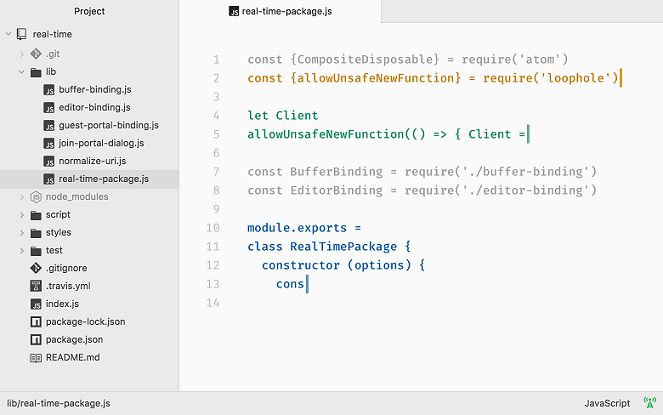
Brackets
Brackets is an open source code editor for web designers and front-end developers. This editor is built on top of web technologies such as JavaScript, HTML and CSS. It currently runs as a desktop application in a thin native shell. Brackets has great features for editing HTML, CSS, and JavaScript code regardless of what framework/platform/browser you use.
Pros:
- Active development, Free, open source and cross-platform support
- Built in browser for live-updates
Cons:
- Misses primary text editor commands
- Made using JavaScript and HTML
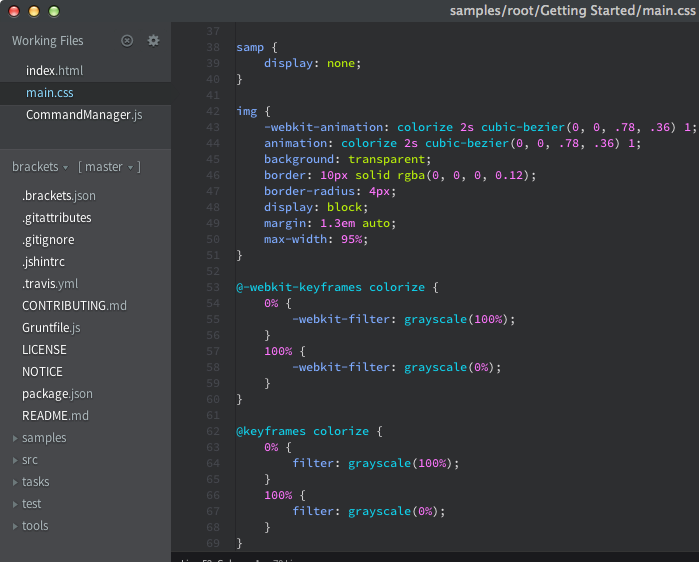
Geany
Geany is a small and lightweight Integrated Development Environment (IDE) based on Scintilla. It was developed to provide a small and fast IDE, with only a few dependencies from other packages. Another goal is to be as independent as possible from desktop environment such as KDE or GNOME. Consequently, Geany only requires the GTK2 toolkit, and the GTK2 runtime libraries.
Geany is one of the more fully-featured editors, as most Linux editors adopt a more minimalist philosophy. It is similar to Windows editors such as NoteTab or ConTEXT.
Pros:
- Lightweight and fast
- Simple Project Management
- Fast search on large files
- Plugin-manager
- Built in terminal, open source and cross-platform
Cons:
- Doesn’t have advanced text editing features
- Not many third party plugins
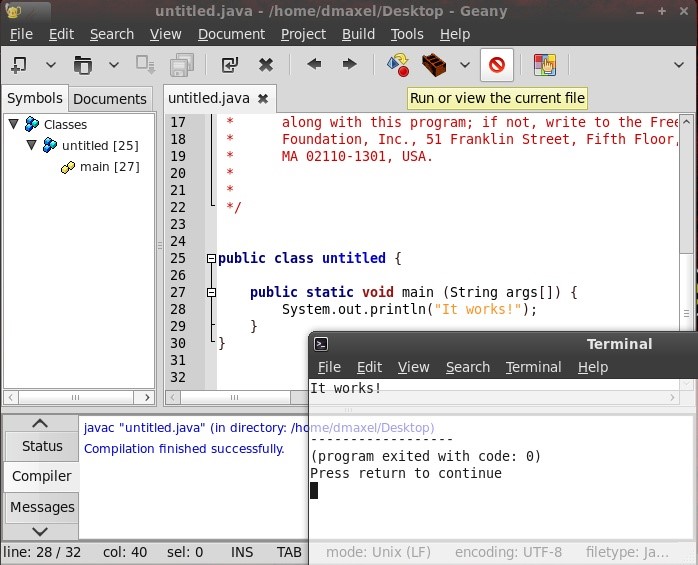
Notepad++
Notepad++ is a powerful, feature-packed text editor that more or less has everything Notepad needs. It supports searches regular expressions, and supports syntax highlighting and folding, synchronized edits and views, and much more. Notepad++ is a source code editor which supports several programming languages under Windows environment. It's also a lightweight replacement of Notepad. The supported languages by Notepad++ are C, C++, Java, C#, XML, HTML, PHP, JavaScript, RC file, makefile, NFO, doxygen, INI file, batch file, ASP, VB/VBS, SQL, Objective-C, CSS, Pascal, Perl, Python, Lua, Unix Shell Script, Fortran, NSIS and Flash action script.
Pros
- Fast and superior performance as compared to other text editors
- Syntax Highlighting and extendable via plugins
- Portable, Split screen, Autosave and screen history features
Cons
- Only support windows OS
- Unstable updates
- Problems with large text files
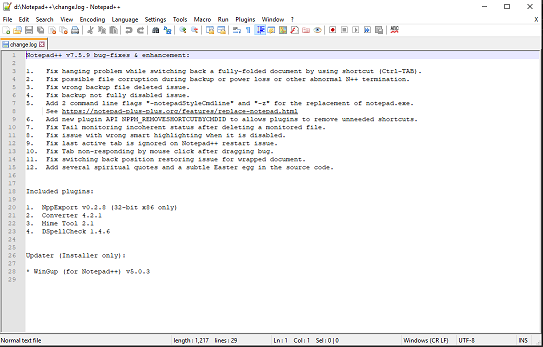
Reference:

